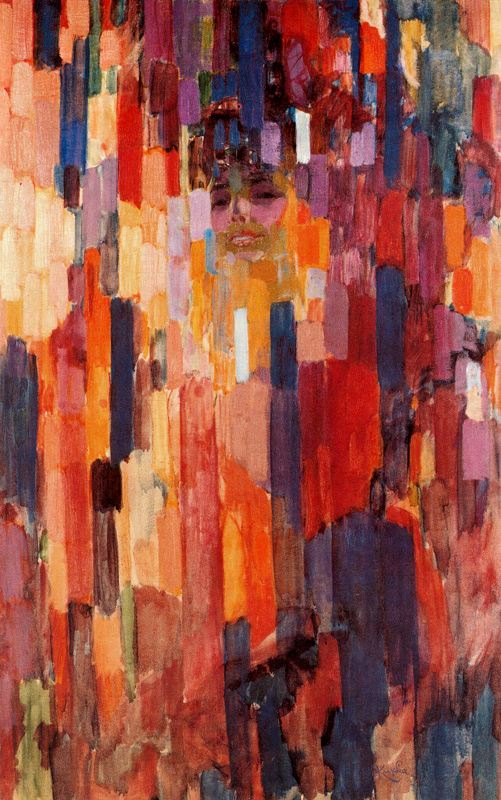The Israeli occupation of the Shebaa farms in Lebanon
is water at the heart of the territorial debate?
DOI:
https://doi.org/10.54446/bcg.v14i1.3386Keywords:
Political Geography of Water, Imperialism, Shebaa Farms, Lebanon-Israel RelationshipAbstract
Some interpreters of the conflicts between Israel and its Middle Eastern neighbors point to the interest in controlling water sources as one of the main reasons for territorial disputes. Regarding the relationship between Lebanon and Israel, there is a case that demands attention due to its relatively little-known status: the Shebaa Farms, a small area of approximately 35 km2 located in the southeastern part of Lebanese territory, adjacent to the Golan Heights. This paper aims to stimulate reflection on the process of occupation of the Shebaa Farms in light of studies within the Political Geography of Water. To achieve this goal, a dialectical approach is employed, particularly drawing upon the concepts of imperialism and subimperialism.
References
ABDEL-KADER, Nizar. Boundaries and demarcation. [Entrevista concedida a] Alexander Ramsbotham. Accord. An International Review of Peace Initiatives, n. 12, p. 78-81, 2012.
AGENCIA EFE. Como el petróleo y el oro: por primera vez en la historia, el agua cotiza en Wall Street. In: Montevideo Portal, Negocios & Tendencias, Montevidéu, 8 dezembro 2020. Disponível em . Acesso em: 9 dez. 2020.
AMERY. Hussein. Scarcity-induced conflict: the Lebanese-Israeli conflict over water (Master’s Thesis Department of Geography). Wilfrid Laurier University, Waterloo, 1987.
AMERY, Hussein. The Litani River of Lebanon. Geographical Review, v. 83, n. 3, p. 229-237, 1993. DOI: https://doi.org/10.2307/215726
BECKER, Bertha. Inserção da Amazônia na geopolítica da água. In: L. Aragón; M. Clusenet-Godt (Ed.), Problemática do uso local e global da água da Amazônia. Belém: Núcleo de Altos Estudos Amazônicos, 2003, p. 273-298.
BERG, Raffi. Israeli views on Shebaa Farms harden. BBC News, Middle East, London, 25 agosto 2006. Disponível em: . Acesso em: 29 nov. 2020.
CARIN, Gabriel. Guerras israelo-libanesas no discurso da Folha de S. Paulo. Monografia de Trabalho de Conclusão de Curso (Bacharelado em Comunicação Social e Jornalismo). Rio de Janeiro: Universidade Federal do Rio de Janeiro, 2015.
CASTRO, Iná. Geografia e Política. Territórios, escalas de poder e instituições. Rio de Janeiro: Bertrand Brasil, 2005.
CAUBET, Christian. A água doce nas relações internacionais. Barueri: Manole, 2006.
CHAHINE, Chady. Les enjeux géopolitiques du conflit frontalier des Fermes de Chebaa: du mythe de l’enjeu du partage des ressources hydriques du bassin du Jordain à la réalité des rivalités du Moyen-Orient Contemporain. (Mémoire pour l’obtention du grade de Maitre em Etudes Internationales). Québec: Université Laval, 2011.
CORM, Georges. El Líbano contemporâneo, historia y sociedad. Barcelona: Bellaterra, 2006.
DADOUCH, Sarah; EGLASH, Ruth. Lebanon and Israel take up disputed maritime border in a rare negotiations. In: The Washington Post, Middle East, Washington, 14 outubro 2020. Disponível em . Acesso em: 02 dez. 2020.
DRIAUX, Delphine. Water supply of ancient Egyptian settlements: the role of the state. Overview of a relatively equitable scheme from the Old to New Kingdom (ca. 2543–1077 BC). Water Hist, v. 8, p. 43-58, 2016. DOI: https://doi.org/10.1007/s12685-015-0150-x
FISK, Robert. Pobre Nação: as guerras do Líbano no século XX. Rio de Janeiro: Record, 2007.
FLATEAU, Cosima. Le contentieux des fermes de Chebaa. In: Les Clés du Moyen-Orient, Analyses Historiques, Paris, 6 junho 2013. Disponível em . Acesso em: 29 nov. 2020.
GELDI, Mahmut. Otoman archives prove Shebaa Farms belong to Lebanon. Anadolu Agency, Middle East, Ankara, 3 maio 2019. Disponível em . Acesso em: 1 jul. 2021.
HAREUVENI, Eyal. Dispossession & Exploitation. Israel’s policy in the Jordan Valley & northern Dead Sea. Jerusalem: B'Tselem, 2011.
HARVEY, David. O neoliberalismo. História e implicações. São Paulo: Loyola, 2005.
HARVEY, David. O novo imperialismo. São Paulo: Loyola, 2014.
JORISH, Avi. Hizballah’s vision of the Lebanon-Israel border. The Washington Institute, Policy Analisys, Washington, 04 março 2002. Disponível em . Acesso em: 2 dez. 2020.
KAUFMAN, Asher. Who owns the Shebaa Farms? Chronicle of a territorial dispute. Middle East Journal, v. 56, n. 4, p. 576-595, 2002.
KAUFMAN, Asher. The Israel-Hezbollah Conflict and the Shebaa Farms. Policy Brief, n. 13, p. 1-4, 2006.
LENIN, Vladimir. O imperialismo: etapa superior do capitalismo. Campinas: Universidade de Campinas, 2011.
MAKDISI, Karim. Israel’s 2006 war on Lebanon reflection on the International Law of Force. The MIT Electronic Journal of Midle East Studies, n. 6, Summer, p. 9-26, 2006.
MARINI, Ruy. La acumulación capitalista mundial y el subimperialismo. Cuadernos Políticos, n. 12, p. 20-39, 1977.
MARINI, Ruy. América Latina: dependência e integração. São Paulo: Brasil Urgente, 1992.
NASSER, C. Shebaa has key water resources. The Daily Star Lebanon, Lebanon News, Beirut, 5 maio 2001. Disponível em . Acesso em: 1 jul. 2021.
OBIDALLAH, Mohammed. Water and Palestinian-Israeli conflict. Central European Journal of International and Security Studies, v. 2, n. 2, p. 103-118, 2010.
OLSON, Jim. Will Wall Street control our water in 21st Century? In: Flow - For Love of Water, Traverse City, 8 abril 2021. Disponível em . Acesso em: 30 mai. 2021.
OSORIO, Jaime. O Estado no centro da mundialização. São Paulo: Outras Palavras, 2014.
PAULET, Jean-Pierre. A mundialização. Rio de Janeiro: Editora da FGV, 2009.
PIÑON, Charles; BARBOSA, Marcelo. A delimitação das fronteiras marítimas e a produção “offshore”: cooperação e conflito entre Israel e o Líbano. Revista da Escola de Guerra Naval, v. 25, n. 2, p. 346-380, 2019. DOI: https://doi.org/10.21544/1809-3191.v25n2.p346-380
PORTO-GONÇALVES, Carlos. Água não se nega a ninguém (a necessidade de ouvir outras vozes). In: PARREIRA, C.; ALIMONDA, H. (Org.). Políticas públicas ambientais latino-americanas. Brasília: Faculdade Latino-Americana de Ciências Sociais, 2005, p. 115-144.
QASSEM, Naim. Hizbullah: the story from within. London: Saqi, 2010.
RIBEIRO, Wagner. Geografia Política da Água. São Paulo: Annablume, 2008.
RODRÍGUEZ POLEY, Daniel. Rivalidades y hegemonía entre las ciudades-estado mesnopotámicas de Lagash y Umma durante el Periodo Protodinástico (Tesis Máster Universitario del Mediterráneo Antiguo). Universitat Oberta de Catalunya, Barcelona, 2019.
SCHWARZ, Rolf. The Israeli-Jordanian water regime: a model for resolving water conflicts in the Jordan River Basin? Geneva: Programme for Strategic and International Security Studies, 2004.
SÁNCHEZ, Pedro; RODRÍGUEZ, Juan. El conflicto del Líbano. Madrid: Ministerio de Defensa, 2009.
SFEIR, Jihane. Fronteiras do “Outro” e a construção de “si”: o caso dos palestinos no Líbano, 1947-1952. Antropolítica, v. 35, n. 2, p. 17-48, 2013.
THE TIMES OF ISRAEL. Lebanese shepherd crosses into Israel, is detained by IDF. The Times of Israel, Jerusalem, 29 abril 2018. Disponível em . Acesso em: 1 jul. 2021.
WOLF, Aaron; ROSS, John. The impact of scarce water resources on the Arab-Israeli conflict. Natural Resources Journal, v. 32, n. 4, p. 920-961, 1992.
ZEITOUN, Mark; EID-SABBAGH, Karim; TALHAMI, Michael; DAJANI, Muna. Hydro-hegemony in the Upper Jordan Waterscape: control and the use of the flows. Water Alternativites, v. 6, n. 1, p. 86-106, 2013.
Downloads
Published
How to Cite
Issue
Section
License
Copyright (c) 2024 Boletim Campineiro de Geografia

This work is licensed under a Creative Commons Attribution 4.0 International License.
The journal is governed by the Creative Commons - Atribution 4.0 license.







